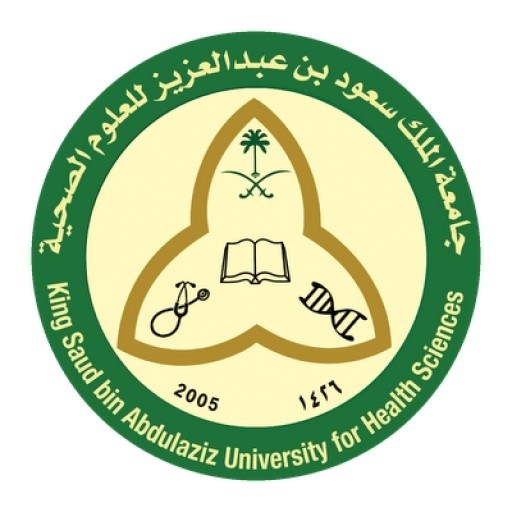Photos of university / #king_saud_university
The Bachelor of Agricultural Economics program at King Saud University is designed to equip students with comprehensive knowledge and practical skills necessary to analyze and address complex issues within the agricultural sector. This multidisciplinary program combines principles of economics, agriculture, and management to prepare graduates for diverse careers in farming industries, government agencies, research institutions, and private enterprises. Throughout the program, students will explore core topics such as microeconomics, macroeconomics, agricultural policy, resource management, environmental sustainability, and market analysis. Emphasizing both theoretical foundations and real-world applications, the curriculum includes coursework, case studies, and projects tailored to the regional and global contexts of agriculture and food systems. Students will also develop quantitative skills, including statistical analysis and economic modeling, to evaluate agricultural productivity, analyze market trends, and formulate effective policies. Practical training through internships and field visits enables students to gain valuable hands-on experience and understand the dynamics of agriculture and related industries. The program aims to produce graduates who are capable of making informed decisions, fostering sustainable agricultural development, and contributing to the economic growth of Saudi Arabia. Upon completion, graduates will be well-positioned for careers in agricultural consultancy, policy formulation, commodity trading, rural development, and academic research, supporting the Kingdom's Vision 2030 objectives for sustainable development and food security.
- Agricultural Economics Analysis
- Economics of Agricultural planning and Development
- Advanced Agricultural Statistics
- English Language
- Land Resources Economic
- Analysis & Evaluation of Agricultural Projects
- Agricultural Production Economics
- Agricultural Price Analysis
- Agricultural finance
- Foreign Trade of Agricultural Products
- Farm Management
- Research methods in Agricultural Sciences
- Agricultural Marketing
- Special Studies
Requirements
- Have a bachelor degree from an accredited institution.
- Pass the exam and interview
- Obtain a minimum score on TOEFL or IELTS. Internet-based TOEFL 61, Computer-based TOEFL 173, Paper-based TOEFL 500, IELTS 6
- Proving a good conduct and being medically fit.
- Submitting two academic recommendations from professors who have taught applicant.
- Employer's approval, if applicant is an employee; in very limited circumstances this approval may be postponed until enrollment into courses.
The financing studies for the Agricultural Economics program at King Saud University are structured to provide comprehensive financial support options to eligible students, ensuring access to quality education in this specialized field. The university primarily funds the program through a combination of government subsidies, internal university budgets, and endowment contributions dedicated to supporting students in agricultural and economic disciplines. Tuition fees are set according to the university’s regulations, with subsidized rates for Saudi nationals and higher fees for international students, reflecting the university’s commitment to promoting local talent while maintaining international standards.
Financial aid opportunities are available for outstanding students through scholarships based on academic performance, leadership qualities, and societal engagement. These scholarships often cover tuition fees, accommodation, and other educational expenses. Additionally, the university collaborates with governmental and private sector entities to establish internship and sponsorship programs that offer financial stipends to students during their studies, thus aiding them in managing living costs and gaining practical experience.
Furthermore, students are encouraged to apply for external scholarships provided by Saudi government agencies, such as the King Abdulaziz Scholarship Program, which offers funding for graduate and undergraduate studies in priority fields including Agricultural Economics. Payment plans and installment options are also provided to facilitate ease of payment for tuition, reducing financial burdens on students and their families.
The university also offers loan facilities through approved financial institutions to support students during their academic journey. These loans are granted under specific terms and conditions, emphasizing the importance of responsible borrowing and timely repayment. Moreover, there are dedicated financial advisory services within the university to assist students in planning their finances, applying for scholarships, and understanding available funding sources.
To ensure transparency and fairness, the university regularly updates its financial policies and communicates them effectively to prospective and current students. The overall aim of the financing studies is to enable students to focus on their academic and research pursuits without undue financial stress, fostering an environment conducive to academic excellence and innovative research in Agricultural Economics.
The Bachelor of Science in Agricultural Economics at King Saud University is designed to equip students with a comprehensive understanding of the economic principles and agricultural practices relevant to the Kingdom of Saudi Arabia and the broader region. The program aims to prepare graduates who can analyze and interpret economic data pertaining to agriculture, natural resources, and rural development, enabling them to contribute effectively to the sectors of food security, agricultural policy, and resource management. The curriculum incorporates a blend of theoretical coursework and practical training, emphasizing economic analysis, farm management, marketing, and policy formulation. Students are exposed to various disciplines including microeconomics, macroeconomics, agricultural finance, and environmental economics, tailored specifically to the context of Saudi agriculture.
The program is structured to foster analytical skills, research capabilities, and strategic thinking. It emphasizes the importance of sustainable agricultural practices and efficient resource utilization aligned with the Kingdom’s Vision 2030 development goals. Students are encouraged to engage in research projects, internships, and field work to gain real-world experience and foster problem-solving skills. Faculty members are distinguished experts in their fields, often involved in research that addresses current challenges faced by agriculture and rural communities in Saudi Arabia.
Graduates of the Agricultural Economics program are prepared for diverse career paths, including roles in government agencies, private agricultural businesses, international organizations, and research institutions. They may work as agricultural economists, policy advisors, market analysts, commodity traders, or development specialists. The university continually updates this program to ensure alignment with technological advancements and regional needs, making it a relevant and competitive choice for students interested in the economic dimensions of agriculture and rural development. The program also promotes interdisciplinary collaboration and innovation, fostering a graduate workforce capable of addressing complex economic issues in the agricultural sector.

